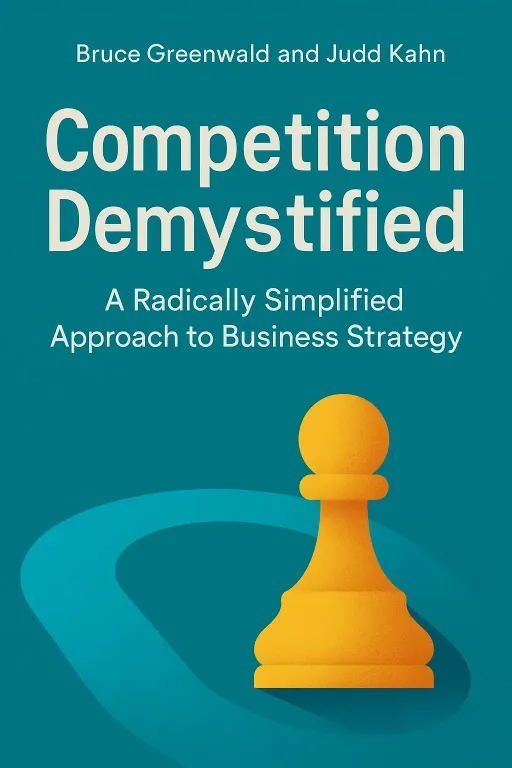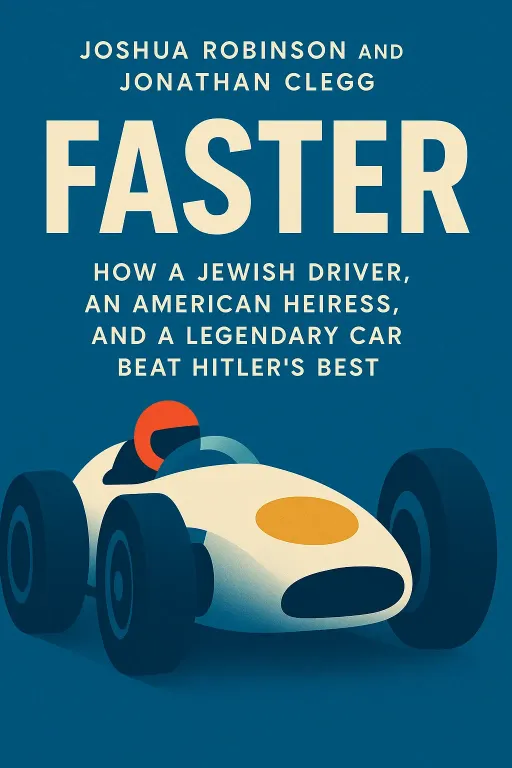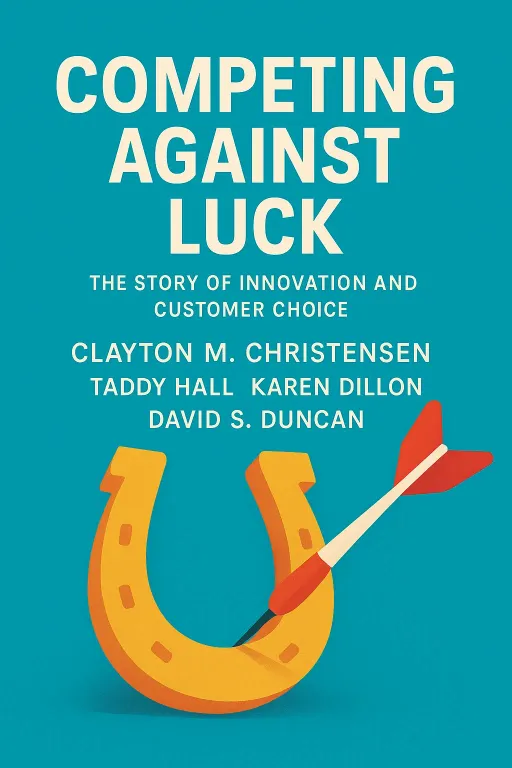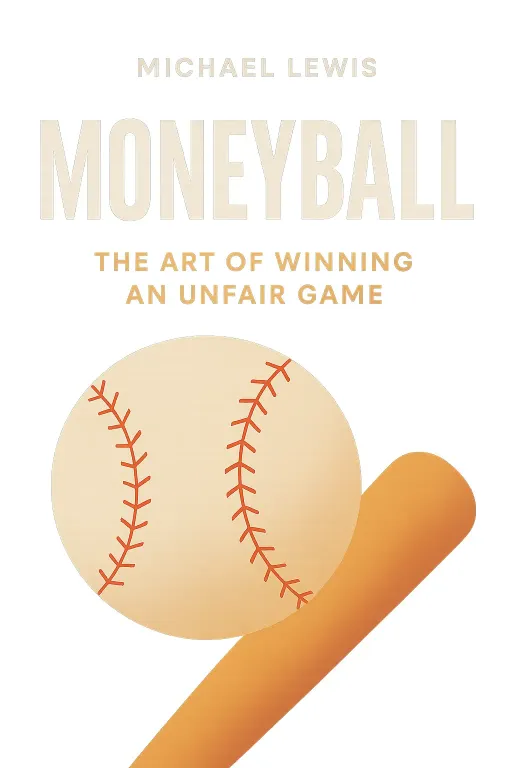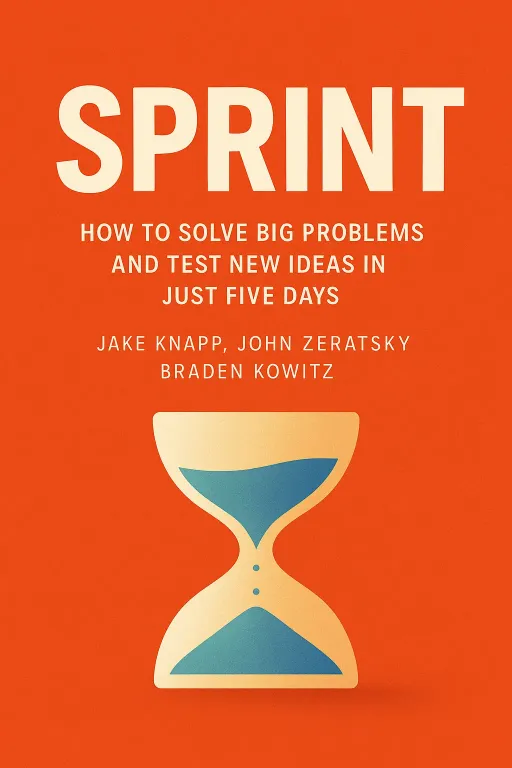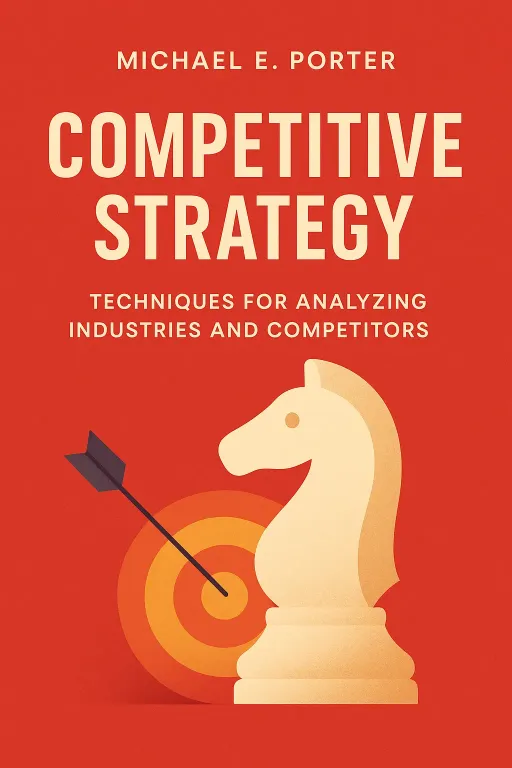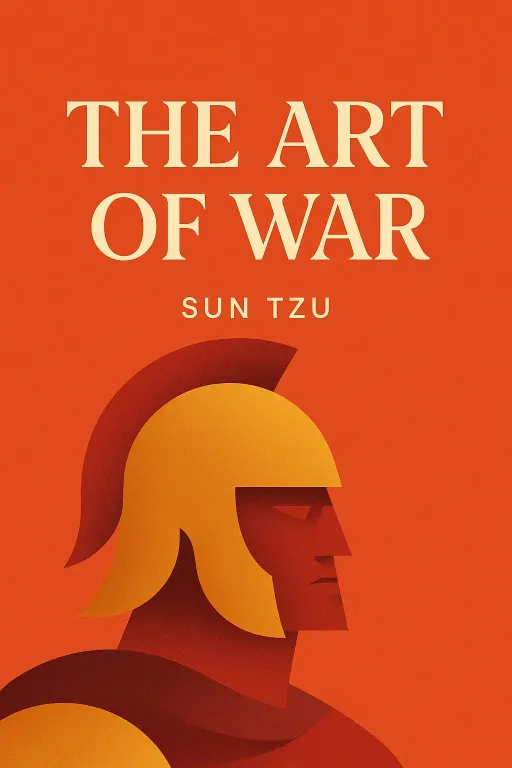
Winning Without Fighting
15 minGolden Hook & Introduction
SECTION
Joe: Most people think The Art of War is a book about, well, war. But what if its most powerful lesson is how to win without ever throwing a punch? What if the ultimate strategy is to make the fight completely unnecessary? Lewis: Wait, so the most famous war manual in history is secretly anti-war? That feels like a paradox. It's like finding out a cookbook is actually about fasting. Joe: Exactly! And that's the genius of it. Today we’re diving into The Art of War by Sun Tzu. And to understand how radical this book is, you have to know when it was written. Lewis: I’m guessing not during a peaceful, flower-arranging festival. Joe: Not even close. This text comes from the 5th century BCE, a chaotic period in China called the Warring States period. It wasn't written in peacetime; it was forged in an era of constant, brutal conflict between rival states. Generations knew nothing but warfare. Lewis: Okay, that context changes everything. So, a guy living in a world of non-stop violence writes a book whose core message is… try not to fight. That’s not just a paradox, that’s a rebellion. Joe: It’s a rebellion against stupidity. Sun Tzu saw rulers and generals making the same costly mistakes over and over, bleeding their states dry for a little bit of land or a lot of ego. He’s essentially saying, "You're all doing it wrong. The goal isn't to be the best fighter; it's to be the smartest winner." Lewis: I like that. It’s not about being a pacifist; it’s about being efficient. Don’t waste your energy, your resources, or your people. So where do we start? What’s the first rule of this new, smarter way of winning?
The Philosophy of 'Winning Without Fighting'
SECTION
Joe: The first rule is the most famous. Sun Tzu writes, "To fight and conquer in all your battles is not supreme excellence; supreme excellence consists in breaking the enemy's resistance without fighting." Lewis: That’s the mic-drop line everyone quotes. But what does it actually mean in practice? How do you win a fight without fighting? It sounds like magic. Joe: It’s not magic, it's a hierarchy of strategy. Sun Tzu lays out a ladder of options, from best to worst. The absolute best, the highest form of generalship, is to "balk the enemy's plans." Disrupt their strategy before it even starts. If you can’t do that, the next best thing is to prevent them from joining forces with their allies. Isolate them. Lewis: So you’re winning by messing with their heads and their relationships. It’s all happening off the battlefield. Joe: Precisely. The third best option is to actually attack their army in the field. And then, at the very bottom of the list, the absolute worst, most idiotic policy of all, is to besiege a walled city. Lewis: Why is that the worst? In movies, sieges look so epic. Huge armies, catapults, dramatic speeches on the walls… Joe: In reality, they are a nightmare of inefficiency. Think about it. Sun Tzu says preparing for a siege—building the massive shields, the armored wagons, the siege engines—takes three whole months. Then, building the earthen ramps up to the walls takes another three months. Lewis: Six months of just… prep work? While your entire army is just sitting there, eating all your food? Joe: Exactly. And if the general gets impatient and orders his men to just swarm the walls like ants, a third of them will be killed, and the city still won't be taken. It’s a catastrophic waste of life, time, and resources. The army’s morale plummets, their weapons get dull, and the state treasury is drained to pay for it all. And while you’re stuck in the mud outside this one city, your other enemies see you’re weak and distracted, and they pounce. Lewis: Wow. That is a perfect metaphor for so many modern business failures. It’s the company that gets into a brutal price war. They pour millions into slashing prices, trying to starve out a competitor. They might eventually "win"—the other guy goes bankrupt—but they've bled themselves dry. Their profit margins are destroyed, their brand is devalued, and they’ve taught their customers to only care about the lowest price. They’ve won the battle but destroyed the market. They’ve captured a hollowed-out city. Joe: That is the modern siege. Or think of a hostile takeover that drags on for years. Lawyers' fees, proxy battles, bad press… by the time you acquire the company, the top talent has fled and its culture is toxic. You’ve "conquered" a ruin. Sun Tzu’s wisdom here is timeless: if your strategy for winning requires you to destroy the very thing you seek, it is, by definition, a bad strategy. Lewis: And this is why the book is so revered, isn't it? It’s praised for this kind of strategic elegance. It’s not just a collection of battlefield tips; it’s a deep philosophy on the nature of conflict itself. Joe: Yes. He’s teaching you to see the entire system, not just the opponent in front of you. He wants you to calculate the cost of victory. And if the cost is too high, you need a better plan. Lewis: Okay, so if you're not using brute force, if you're not laying siege, you have to use your brain. Which brings us to the most famous, and maybe the most controversial, part of the book, right? The dark arts. Joe: The dark arts indeed. It’s time to talk about deception.
The Art of Deception and Knowing Your Enemy
SECTION
Lewis: "All warfare is based on deception." That’s the other huge Sun Tzu quote. And this is where it gets a little morally murky for the modern reader, I think. Joe: It’s definitely the sharpest edge of his philosophy. He’s not suggesting you be a good sport. He’s suggesting you manipulate your enemy’s perception of reality so completely that they defeat themselves. Lewis: Give me the specifics. How does it work? Joe: He gives a whole list of deceptive tactics. "When able to attack, we must seem unable; when using our forces, we must seem inactive; when we are near, we must make the enemy believe we are far away; when far away, we must make him believe we are near." It's about creating a constant state of confusion. Lewis: You’re basically gaslighting your opponent on a national scale. Joe: A perfect way to put it. And he says to "hold out baits to entice the enemy. Feign disorder, and crush him." One of the best historical examples of this is the Battle of Guandu in 200 AD. It’s a masterclass in Sun Tzu’s principles. Lewis: Set the scene for me. Joe: You have two warlords. On one side is Yuan Shao, who is arrogant, powerful, and commands a massive army of over 100,000 men. On the other side is Cao Cao, a brilliant but much weaker strategist with only about 20,000 soldiers. On paper, Cao Cao should be annihilated. Lewis: A five-to-one disadvantage. The odds are terrible. Joe: Terrible. But Cao Cao knew his Sun Tzu. He knew Yuan Shao was overconfident and his command structure was a mess. So, what does he do? He doesn't try to fight Yuan Shao’s main army. That would be suicide. Instead, he avoids their strength and attacks their weakness. Lewis: Which is what? Joe: Their supply lines. An army that big needs a colossal amount of food and provisions. Cao Cao sends small, fast-moving raiding parties to constantly harass Yuan Shao’s supply convoys. It’s like a thousand paper cuts. It doesn't destroy the army, but it creates chaos, slows them down, and starts to drain their morale. He's feigning weakness, making only small attacks, while luring Yuan Shao into a false sense of security. Lewis: So Yuan Shao thinks, "He's too scared to face me directly. I've already won." Joe: Exactly. Then comes the masterstroke. Cao Cao gets intelligence—and we'll talk about spies later—that Yuan Shao's main supply depot at a place called Wuchao is lightly guarded. It's the heart of his entire operation. So Cao Cao leads a daring, high-risk night raid himself. He burns the entire depot to the ground. Lewis: Oh, that’s devastating. Joe: It was the turning point. When news reached Yuan Shao's main army that all their food was gone, the army simply disintegrated. Morale collapsed. Soldiers deserted in droves. Cao Cao, with his tiny force, achieved one of the most decisive victories in Chinese history, not by out-fighting his enemy, but by out-thinking them. He attacked a weak point, used deception, and understood his enemy's psychology. Lewis: This is where some of the modern criticism comes in, though. Scholars and readers have pointed out that Sun Tzu is the ultimate pragmatist. It’s about winning, period. In a modern business context, is 'deception' just a sanitized term for corporate espionage, lying to your competitors, and poaching their staff? Where do you draw the line before you're just running an unethical organization? Joe: That's the critical question, and I don't think Sun Tzu gives an easy answer. He's a product of his time—a brutal, zero-sum world. But in a modern context, I think the lesson isn't about literal lying. It's about strategic misdirection and managing perceptions. Lewis: What’s the difference? Joe: Think about Apple launching a new product. They operate in total secrecy. They might leak false rumors to throw competitors off the scent. That's deception. When a company launches a "basic" version of their software for free to attract users, while their real goal is to upsell them to the premium version, that's "holding out a bait." It’s not necessarily about illegal or unethical acts, but about understanding that any competitive arena is a game of psychology and positioning. Lewis: So it's about being unpredictable. If your competitors always know what you're going to do next, you've already lost. Joe: You've lost. And you can't be unpredictable or pull off these brilliant deceptions if your own house isn't in order. You can't have a brilliant strategy with a demoralized army or, even worse, a foolish general. And that brings us to what might be the most important part of the whole book: the human element.
The Human Element & The Five Fatal Flaws
SECTION
Joe: The leader, the general, is what Sun Tzu calls the "bulwark of the State." If the general is competent, the state is strong. If the general is weak, the state is defenseless. Everything rests on their shoulders. Lewis: And he has a very specific list of ways a leader can fail, right? I remember reading about this. It’s brutally accurate. Joe: It is. He outlines five dangerous faults in a general. These are character flaws that will lead to ruin. The first is recklessness, which leads to destruction. Lewis: The leader who just charges ahead without thinking. Joe: The second is cowardice, which leads to capture. The third is a hasty temper, which can be provoked by insults. Lewis: Oh, that’s a good one. The leader who is easily triggered. You can manipulate them just by getting under their skin. Joe: The fourth is a delicacy of honor, which is sensitive to shame. This is the leader who is so obsessed with their reputation that they'll make a bad decision just to avoid looking bad. And the fifth, which is a bit counter-intuitive, is over-solicitude for his men, which exposes him to worry and trouble. Lewis: Wait, caring too much for your people is a flaw? That sounds wrong. Joe: It's not about not caring. It's about being so paralyzed by the fear of your people getting hurt that you become indecisive. You can't take necessary risks. You become predictable because your primary motive is avoiding any and all casualties, even when a bold move is required for victory. Lewis: You become too defensive and lose the initiative. Joe: Exactly. And there's a tragic story from the Warring States period that perfectly illustrates the first fault, recklessness. It’s the story of General Zhao Kuo. Lewis: I have a bad feeling about this guy already. Joe: You should. The state of Zhao was at war with the state of Qin. Their commander was an old, experienced general named Lian Po, who was using a brilliant defensive strategy, frustrating the Qin army and wearing them down. But the King of Zhao grew impatient. He wanted a glorious, quick victory. Lewis: A classic leadership mistake. Ignoring the expert and wanting fast results. Joe: So he sacks the experienced general and replaces him with Zhao Kuo. Now, Zhao Kuo was famous for having memorized every military text in existence. He could talk about strategy all day long. He was "book-smart." But he had never actually commanded a single battle in his life. Lewis: Oh no. This is the intern who read all the business books and now thinks he can run the company. Joe: It’s exactly that. The first thing Zhao Kuo does is abandon the successful defensive strategy and launch an all-out, reckless offensive against the Qin army. The Qin commander, a ruthless genius named Bai Qi, couldn't believe his luck. He feigned a retreat, lured Zhao Kuo's entire army deep into a trap, cut off their supply lines, and surrounded them. Lewis: The very thing Sun Tzu warns against. Joe: For 46 days, the Zhao army was besieged and starved. In the end, Zhao Kuo led a desperate breakout attempt and was killed by a volley of arrows. His army, leaderless and starving, surrendered. Lewis: What happened to them? Joe: The Qin general, Bai Qi, had them all executed. Over 400,000 soldiers. It was a catastrophe that crippled the state of Zhao for a generation. All because of one reckless, inexperienced leader who knew the words of strategy but not its soul. Lewis: 400,000 people… that’s horrifying. And we see these five flaws in modern leaders all the time. The reckless CEO who bets the company on one unproven product. The cowardly manager who won't stand up for their team. The hot-tempered founder who can be goaded into a Twitter war. It's the same pattern. Joe: It is. And on the flip side, Sun Tzu says the good general must "regard your soldiers as your children, and they will follow you into the deepest valleys; look upon them as your own beloved sons, and they will stand by you even unto death." It’s not about being soft, but about building a foundation of trust and loyalty. If your people know you are competent and that you have their best interests at heart, they will do anything for you. Lewis: That’s the core of modern leadership theory right there. Psychological safety, purpose, trust. It all comes back to this ancient text. It’s amazing how it all ties together.
Synthesis & Takeaways
SECTION
Joe: In the end, it’s a three-legged stool. You have the philosophy of winning without fighting, which sets your grand strategy. You have the tactical genius of deception and knowing your enemy, which is how you execute that strategy. And you have the human wisdom of leadership and morale, which is the foundation everything is built on. Without all three, the stool collapses. Lewis: It’s so much deeper than the "get-rich-quick" style business book that just pulls a few quotes. You have to understand the whole system. The book is really a challenge to think differently. Joe: It is. It’s about cultivating a certain kind of mind. A mind that is fluid, adaptable, and always looking for the angle, the leverage point. Sun Tzu says military tactics are like water. Water in its natural course runs away from high places and hastens downwards. So in war, the way is to avoid what is strong and to strike at what is weak. Lewis: That’s a beautiful way to put it. It makes you wonder, in our own lives or careers, how often are we trying to win by laying siege to a problem? Just throwing more time, more money, more brute force at it, hoping the walls will crumble. Joe: When there might be a completely different way in. A side door we haven't noticed. Lewis: Exactly. I think the real question Sun Tzu leaves us with is: what's the smartest path, not the most direct one? And are we willing to be clever and patient enough to find it? Joe: A question as relevant today as it was 2,500 years ago. We'd love to hear from our listeners. Have you ever used an "Art of War" strategy in your own life, maybe without even realizing it? A time you out-thought a problem instead of out-muscling it? Let us know on our social channels. We read every comment. Joe: This is Aibrary, signing off.
